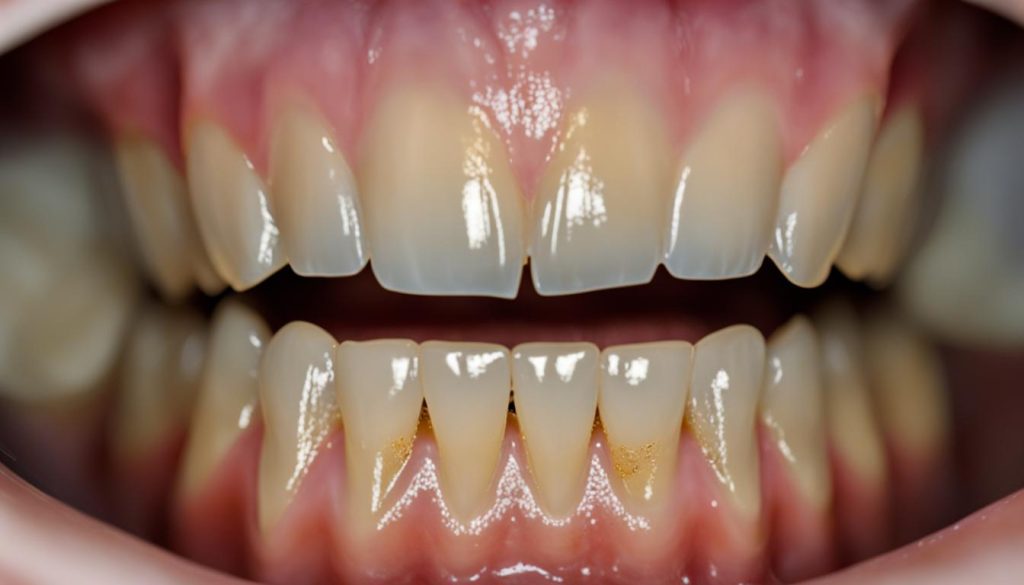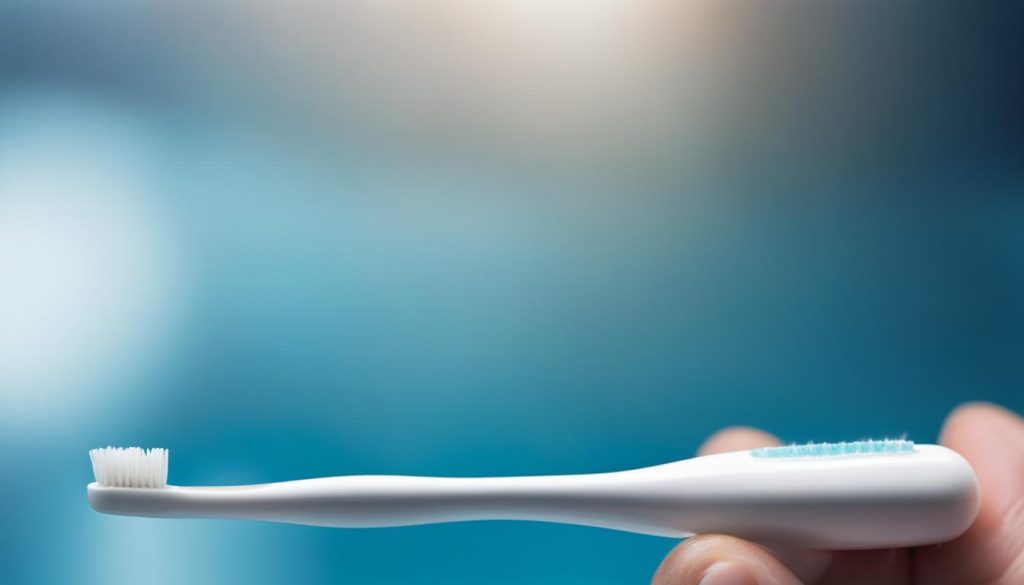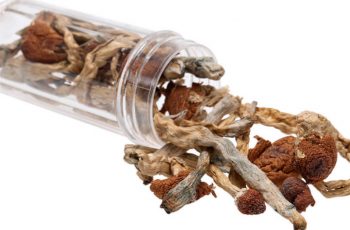Hello, I’m here to talk about some habits that can be detrimental to our oral health. We often overlook the impact that our daily habits can have on our teeth and gums, but they play a significant role in maintaining a healthy smile.
In this article, we will explore the habits that can cause bad breath, bleeding gums, and yellow teeth, and discuss how we can prevent these issues from occurring.
Whether it’s the way we brush our teeth or the things we put in our mouths, certain habits can contribute to oral health problems. Understanding these habits and their effects is the first step in taking control of our dental health. So, let’s dive in and discover what they are.
Habits That Cause Bad Breath Bleeding Gums And Yellow Teeth
- Bad breath, bleeding gums, and yellow teeth can be caused by certain habits.
- Nail biting, smoking, aggressive tooth brushing, teeth grinding, using teeth as tools, and neglecting regular dental visits are some harmful habits.
- These habits can lead to various effects such as tooth sensitivity, oral cancer, gum disease, headaches, tooth decay, and more.
- Maintaining good oral hygiene practices and avoiding harmful habits are crucial for preventing these issues.
- Regular dental visits play a vital role in maintaining oral health.
Harmful Habits for Teeth and Gums
In order to maintain optimal oral health, it is important to be aware of certain habits that can have negative effects on your teeth and gums. These habits include:
- Nail Biting:
Nail biting not only affects the appearance of your nails but can also chip or crack your teeth. Additionally, this habit can lead to tooth sensitivity, making it uncomfortable to consume hot or cold foods and beverages. - Smoking:
Smoking is detrimental to oral health in many ways. Not only does it increase the risk of oral cancer, but it also contributes to gum disease and tooth loss. Quitting smoking is not only beneficial for your overall health but also for the health of your teeth and gums. - Aggressive Tooth Brushing:
Brushing your teeth too vigorously can damage the enamel and gums, leading to tooth sensitivity and gum recession. It is important to use a soft-bristled toothbrush and a gentle brushing technique to effectively clean your teeth without causing harm. - Teeth Grinding:
Teeth grinding, also known as bruxism, can put excessive pressure on your teeth and strain the jaw muscles. Over time, this can lead to headaches, facial pain, and worn-down teeth. Understanding the underlying causes of teeth grinding and seeking appropriate treatment can help alleviate these symptoms. - Using Teeth as Tools:
Using your teeth as tools to open packages or tear objects can result in chips and cracks. It is important to remember that your teeth are meant for chewing food and not for performing tasks that can potentially cause damage. - Neglecting Regular Dental Visits:
Regular dental check-ups are essential for maintaining good oral health. Neglecting to visit the dentist regularly can allow oral health issues to go unnoticed and progress to a point where irreversible damage may occur. It is recommended to schedule routine dental appointments to address any potential concerns and receive appropriate preventive care.
By being aware of these harmful habits and taking steps to avoid them, you can significantly improve your oral hygiene and reduce the risk of dental problems such as gum disease and tooth decay.
Effects of Harmful Habits on Teeth and Gums
The poor dental habits and oral hygiene practices mentioned earlier can have detrimental effects on the health of your teeth and gums. Let’s take a closer look at how these habits can impact your oral health:
- Nail biting: This common habit not only damages the appearance of your nails but can also lead to bad breath. It can chip or crack your teeth and even cause jaw pain.
- Smoking: In addition to increasing the risk of oral health problems, smoking can stain your teeth and give you bad breath. It also affects your taste sensitivity, making it difficult to enjoy food.
- Aggressive tooth brushing: Brushing your teeth with too much force can damage your tooth enamel and gums. This can lead to tooth sensitivity and gum recession, exposing the roots of your teeth.
- Teeth grinding: Grinding your teeth, especially while sleeping, can result in headaches, jaw soreness, and worn-down teeth. It’s a habit that puts a lot of strain on your jaw muscles.
- Using teeth as tools: Using your teeth to open packages, tear tape, or crack nuts can cause chips and cracks. This not only weakens your teeth but also increases the risk of tooth decay and tooth loss.
- Neglecting regular dental visits: Failing to visit your dentist for regular check-ups and cleanings allows oral health issues to worsen. It can lead to more serious problems such as gum disease, tooth decay, and even tooth loss.
It is important to be mindful of these harmful habits and make a conscious effort to break them. By adopting proper dental hygiene practices and seeking regular dental care, you can protect the health of your teeth and gums and prevent future dental problems.
Tips for Maintaining Good Oral Hygiene
To maintain good oral hygiene and prevent problems like bad breath, bleeding gums, and yellow teeth, it’s important to follow proper oral care practices. Here are some helpful tips to keep your smile healthy and fresh:
- Brush your teeth twice a day: Use a soft-bristled toothbrush and fluoride toothpaste to brush your teeth thoroughly for at least two minutes each time. This helps remove plaque and bacteria that can cause bad breath and tooth decay.
- Floss daily: Flossing helps remove plaque and food particles from between your teeth and along the gumline, preventing gum disease and bleeding gums. Make sure to floss gently and effectively for optimal results.
- Use mouthwash: Rinse your mouth with an antimicrobial mouthwash after brushing and flossing to kill bacteria and freshen your breath. Look for a mouthwash that contains fluoride to strengthen tooth enamel.
- Visit the dentist regularly: Schedule regular check-ups and cleanings with your dentist to maintain optimal oral health. Your dentist can detect and address any issues early on, preventing them from becoming more serious.
- Avoid harmful habits: Smoking, aggressive tooth brushing, teeth grinding, and using teeth as tools can damage your teeth and gums. Quitting smoking, using a gentle brushing technique, wearing a mouthguard for teeth grinding, and using proper tools can help prevent dental problems.
- Follow a balanced diet: Eating a nutritious diet that includes plenty of fruits and vegetables can provide essential nutrients for strong teeth and gums. Limiting sugary and acidic foods and drinks can help prevent tooth decay and yellowing.
- Stay hydrated: Drinking plenty of water throughout the day helps maintain saliva production, which is essential for neutralizing acids and washing away bacteria in the mouth.
By incorporating these oral hygiene practices into your daily routine, you can prevent bad breath, bleeding gums, and yellow teeth, and maintain optimal oral health. Remember, a healthy smile starts with good oral care!
How to Address Discolored Teeth
Discolored teeth can be a common concern. Dentists use different treatments depending on the cause and type of discoloration.
Teeth Whitening Treatments

Teeth whitening treatments can help remove surface stains and brighten discolored teeth. There are two main options: in-office whitening and at-home whitening. In-office whitening involves a professional application of bleaching agents to achieve noticeable results in a single visit. At-home whitening kits usually come with custom trays and whitening gel, allowing you to whiten your teeth gradually over a period of time.
Dental Bonding
Dental bonding is a procedure where tooth-colored resin is applied to the surface of the teeth to conceal deep discoloration. This method is often used for individual teeth and can effectively improve their appearance.
Porcelain Veneers
For widespread or severe discoloration, porcelain veneers are an option. Veneers are thin shells made of porcelain that are customized to fit over the front surface of the teeth. They can provide a natural-looking solution to permanently mask discoloration.
Dental Crowns
If discoloration is accompanied by weakened or decayed teeth, dental crowns may be recommended. Dental crowns cover the entire visible portion of the tooth, restoring its size, shape, and appearance while improving strength and durability.
It’s important to consult with a dentist to determine the best approach for addressing discolored teeth based on your specific needs and the underlying causes of the discoloration.
Addressing Discolored Teeth at Home
If you’re looking to address tooth discoloration from the comfort of your own home, there are a few dental care practices you can incorporate into your routine. While over-the-counter teeth whitening treatments are readily available, it’s important to consult with a dentist before using them to ensure their safety and effectiveness.
Tooth discoloration prevention starts with good oral hygiene. Brushing your teeth at least twice a day with a soft-bristled brush and fluoride toothpaste can help remove surface stains. When brushing, make sure to use gentle, circular motions to avoid damaging the enamel. Additionally, flossing daily can remove plaque and prevent stains between the teeth.
- Avoiding foods and drinks that stain teeth is also key to preventing discoloration. Some common culprits include coffee, tea, red wine, and dark-colored sauces.
- It’s equally important to avoid using tooth-damaging ingredients like baking soda, activated charcoal, and citric acid for teeth whitening purposes. Although these substances may seem promising, they can erode the enamel over time, leading to greater discoloration and sensitivity.
- When selecting teeth whitening products, look for those with the ADA Seal of Acceptance. This seal signifies that the product has been rigorously tested and meets the highest standards of safety and effectiveness.
Remember, while these dental care practices can be effective for surface discoloration prevention, professional dental care may be necessary for more severe cases. A dentist can provide personalized advice and treatments to help address any concerns you may have about tooth discoloration.
The Importance of Regular Dental Visits
Regular dental visits are crucial for maintaining good oral health. As an advocate for oral hygiene and fresh breath, I cannot stress enough the importance of prioritizing regular dental exams and cleanings. By visiting your dentist on a consistent basis, you can detect and address oral health issues early on, preventing them from worsening and causing irreversible damage.
During these visits, your dentist will not only provide professional cleanings to remove plaque and tartar buildup but also offer valuable oral hygiene tips and recommendations tailored to your individual needs. These personalized tips can greatly contribute to your oral health and help you maintain fresh breath, prevent gum disease, and avoid tooth decay. Dentists have a wealth of knowledge and expertise when it comes to oral care, and they are dedicated to supporting you in your journey towards a healthy smile.
Additionally, regular dental visits allow your dentist to closely monitor your oral health and identify any potential issues before they become more severe. It’s always easier and less expensive to address oral health concerns in their early stages. By addressing these concerns promptly, you can save yourself from unnecessary pain, discomfort, and costly treatments down the line.

Don’t underestimate the power of regular dental visits in maintaining your oral health. These visits not only provide essential cleanings but also offer a wealth of oral hygiene tips and personalized recommendations. By partnering with your dentist and making regular dental exams and cleanings a priority, you can enjoy fresh breath, prevent gum disease, and receive the necessary oral health care tips to ensure a healthy smile for years to come.
Conclusion
Developing good oral hygiene habits and avoiding harmful habits is essential for maintaining oral health and preventing issues like bad breath, bleeding gums, and yellow teeth. By following proper oral care practices, such as brushing your teeth twice a day with a soft-bristled toothbrush and fluoride toothpaste, flossing daily, and using mouthwash, you can effectively maintain your oral health.
In addition to these practices, it’s important to address any issues with discolored teeth. Consulting with a dentist can help determine the best approach for addressing the specific cause and type of discoloration. Teeth whitening treatments, dental bonding, porcelain veneers, and dental crowns are options that can help improve the appearance of discolored teeth.
Regular dental visits are also crucial for maintaining oral health. Dentists can detect and address oral health issues early on, preventing them from worsening and causing irreversible damage. They can also provide professional cleanings to remove plaque and tartar buildup, and offer personalized oral hygiene tips and recommendations. By prioritizing regular dental exams and cleanings, you can maintain fresh breath, prevent gum disease and tooth decay, and receive the necessary guidance for optimal oral health.
Remember, oral care should be a priority in your daily routine. By avoiding harmful habits, following proper dental care practices, and seeking professional dental care when needed, you can ensure a healthy smile for life and avoid future dental issues.
FAQ
What are some habits that can cause bad breath, bleeding gums, and yellow teeth?
Certain habits such as nail biting, smoking, aggressive tooth brushing, teeth grinding, using teeth as tools, and not visiting the dentist regularly can contribute to these oral health issues.
How does nail biting affect oral health?
Nail biting can chip or crack teeth, cause tooth sensitivity, and lead to bad breath and jaw pain.
What are the effects of smoking on oral health?
Smoking increases the risk of oral cancer, gum disease, and tooth loss. It also causes stained teeth, bad breath, and decreased taste sensitivity.
How does aggressive tooth brushing impact teeth and gums?
Aggressive tooth brushing can damage tooth enamel and gums, leading to sensitivity, gum recession, and oral health issues.
What are the consequences of teeth grinding?
Teeth grinding strains the jaw muscles and can result in headaches, jaw soreness, worn-down teeth, and oral health complications.
Why is using teeth as tools harmful?
Using teeth as tools can cause chips, cracks, tooth decay, and tooth loss, leading to oral health problems.
How does neglecting regular dental visits impact oral health?
Neglecting regular dental visits can allow oral health issues to worsen, potentially leading to irreversible damage and more serious problems.
What are some tips for maintaining good oral hygiene?
To maintain good oral hygiene, it’s important to brush your teeth twice a day with a soft-bristled toothbrush and fluoride toothpaste, floss daily, use mouthwash, and visit the dentist regularly for check-ups and cleanings.
How can discolored teeth be addressed?
Dentists use different treatments for discolored teeth, such as teeth whitening, dental bonding, porcelain veneers, and dental crowns. The best approach depends on the cause and type of discoloration.
Are there any at-home remedies for teeth discoloration?
While there are over-the-counter teeth whitening treatments available, it’s important to consult with a dentist before using them. Maintaining good oral hygiene practices, limiting foods and drinks that stain teeth, and avoiding tooth-damaging ingredients can help prevent surface discoloration of teeth.
Why are regular dental visits important?
Regular dental visits are crucial for maintaining good oral health. Dentists can detect and address oral health issues early on, provide professional cleanings, offer oral hygiene tips tailored to individual needs, and prevent oral health complications.
How can one maintain fresh breath and receive personalized oral health care tips?
By prioritizing regular dental exams and cleanings, individuals can maintain fresh breath, prevent gum disease, tooth decay, and receive personalized oral health care tips from their dentist.
What is the importance of maintaining good oral hygiene habits and avoiding harmful habits?
Developing good oral hygiene habits and avoiding harmful habits is essential for maintaining oral health, preventing issues like bad breath, bleeding gums, and yellow teeth, and ensuring a healthy smile for life.




